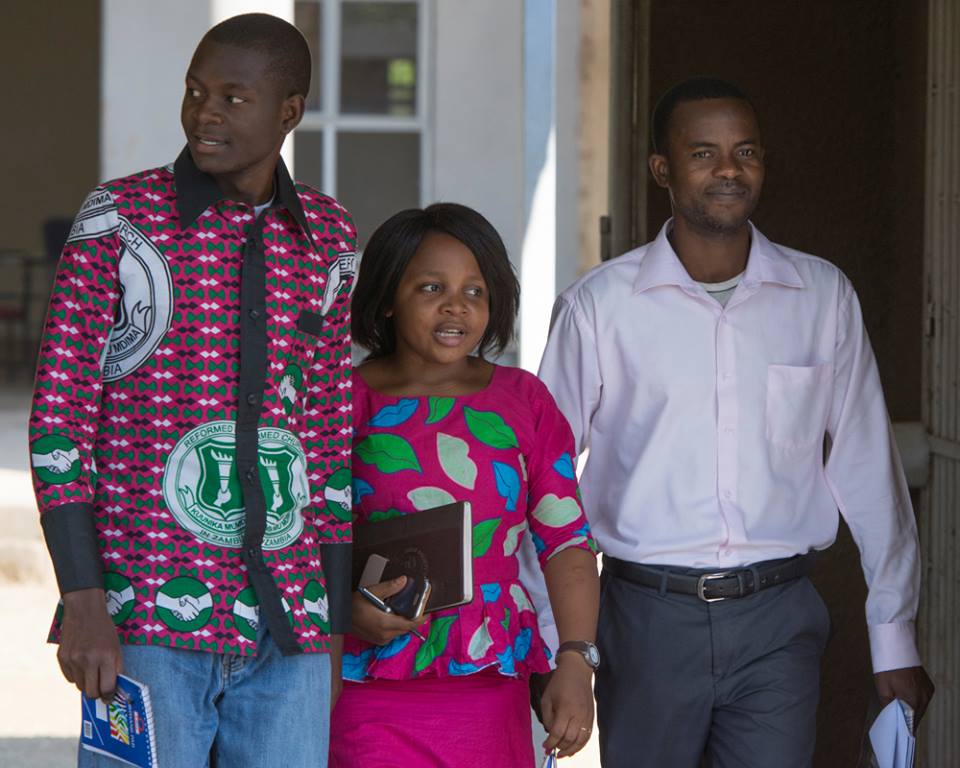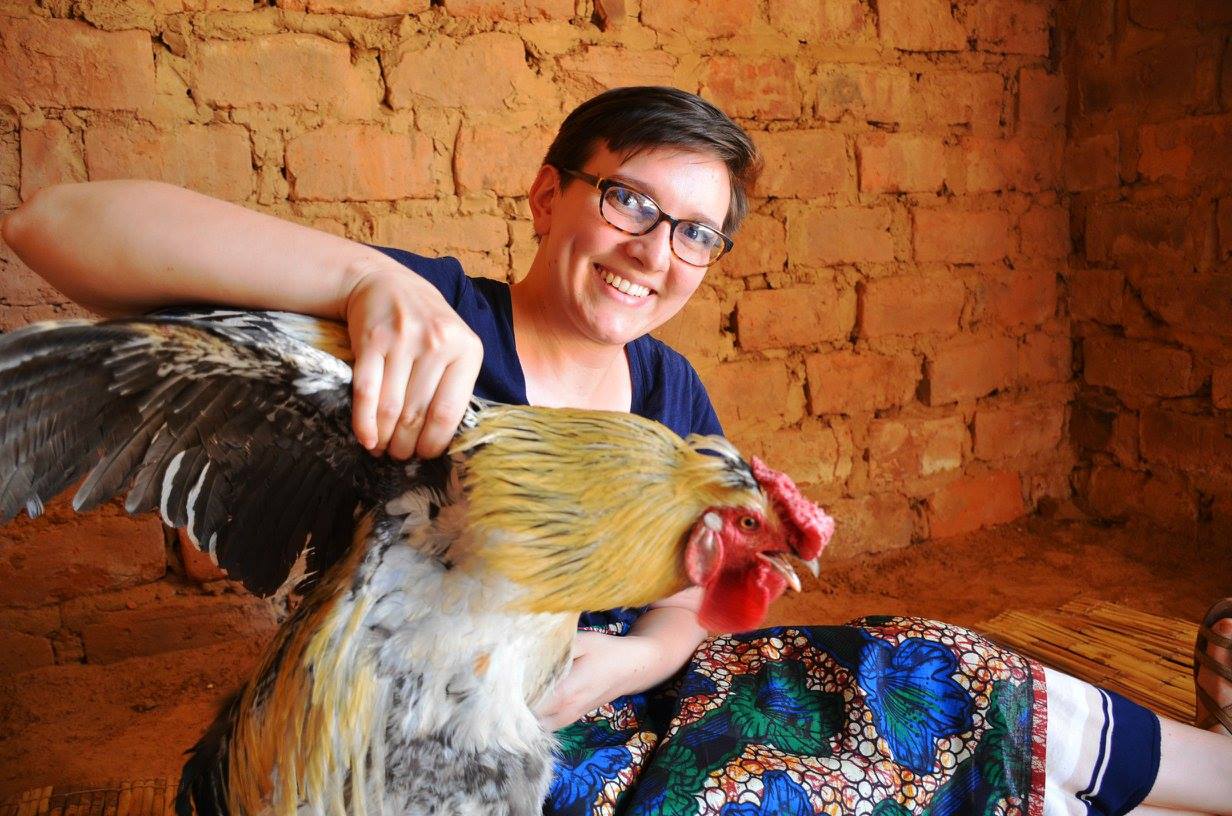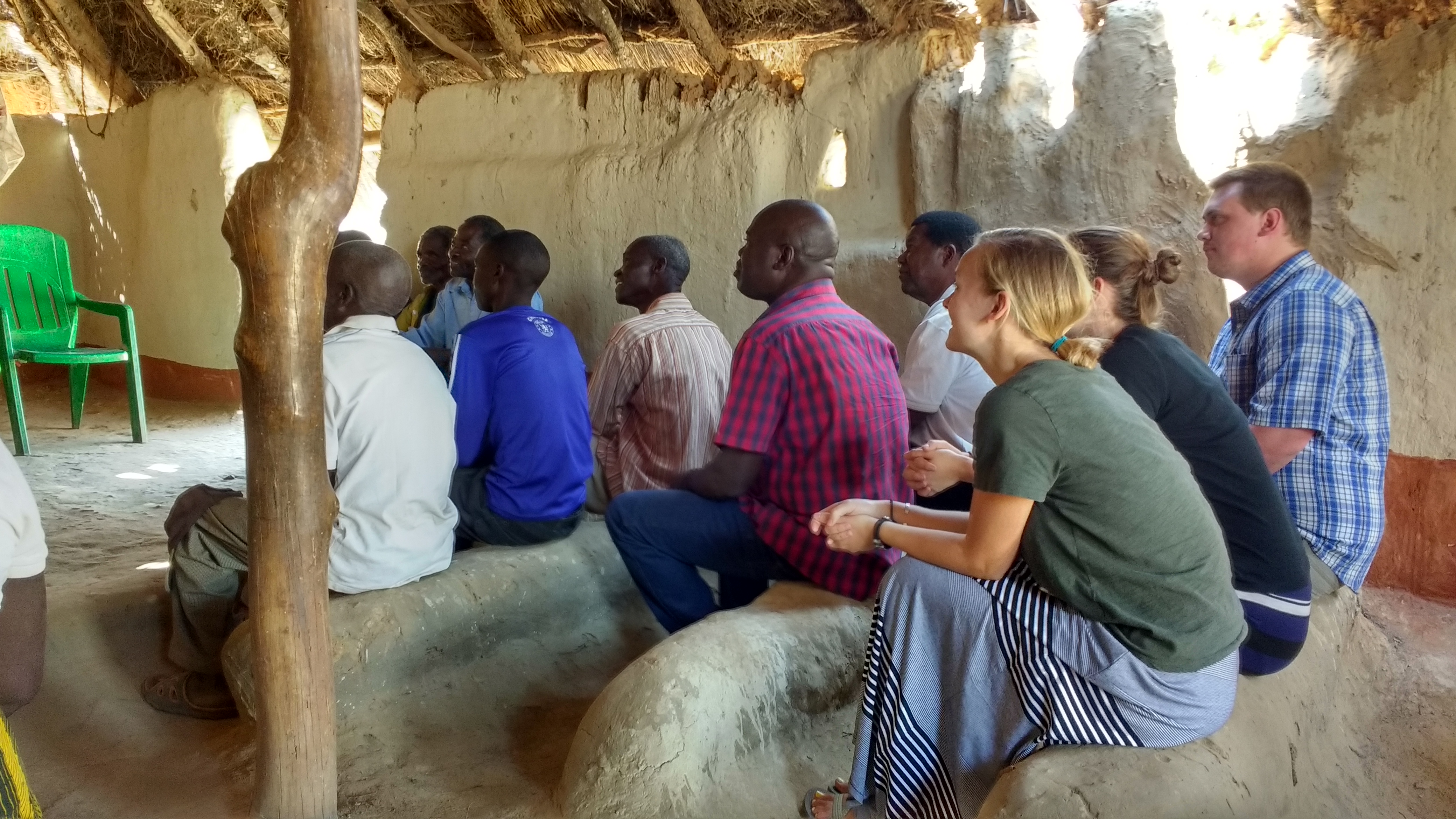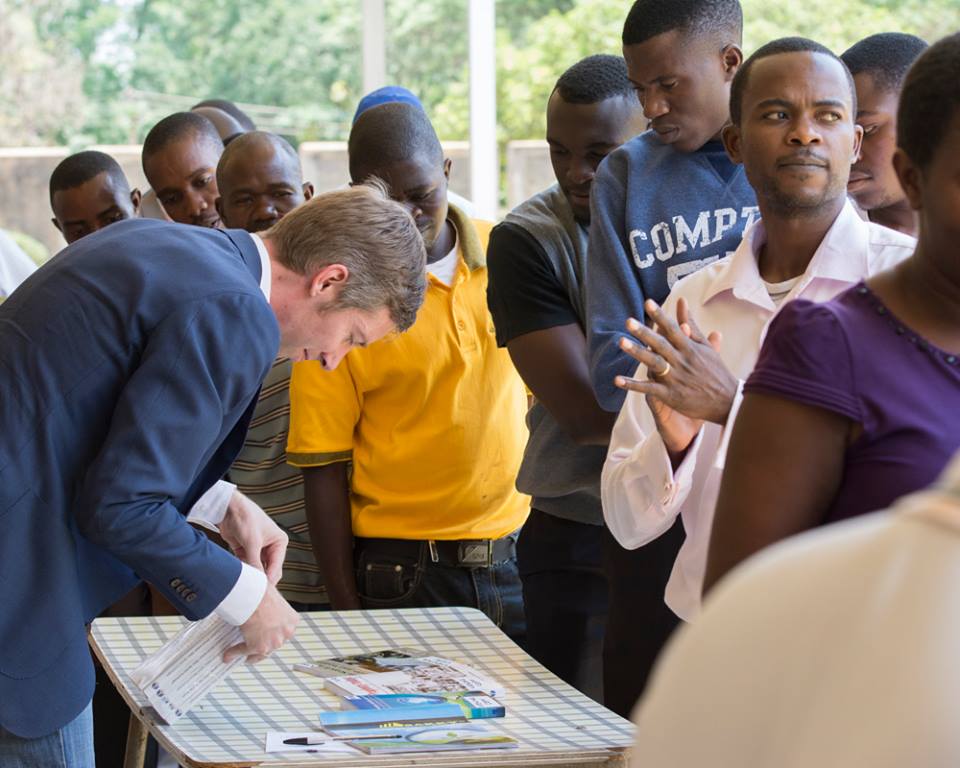A letter from Dustin Ellington serving in Zambia
November 2016
Write to Dustin Ellington
Write to Sherri Ellington
Individuals: Give online to E200478 for Dustin and Sherri Ellington’s sending and support
Congregations: Give to D507543 for Dustin and Sherri Ellington’s sending and support
Churches are asked to send donations through your congregation’s normal receiving site (this is usually your presbytery).
Dear friends,
From time to time we have conversations in ministry that help us to see afresh why we are here in Zambia.
One of my students recently asked to talk with me in my office. I was a little surprised when he arrived and said he actually wanted to discuss what salvation means. He’s soon to graduate and be ordained, and my experience in America and in Egypt was that pastors and future pastors tend to know fairly well what they think about salvation. But this student was really wrestling with the topic on account of what he had gone through in his various practical ministry experiences. He told me that, based on his experience, all across Zambia are thousands and thousands of people in his particular denomination who doubt that they are on the path of salvation, or that they are born again, because they continue to be poor, or because they have not been healed from their diseases. My student said many have also lost confidence in the pastors of their churches, because if their pastors were the real thing, then the people in the pews would be doing much better financially.
We then talked about what happens in the New Testament, and what Jesus says to people when they become disciples. Any promises of material wealth? If anything, it sounds like the opposite: “Take up your cross and follow me…” And when Paul’s letters speak of knowing Christ, does he say it will lead to prosperity? Well, no. It leads to becoming more like Christ.
My student said the whole subject of salvation is so confusing here because people have heard it preached over and over that the sign of being a child of God is an increase in physical property, or a growing bank account, or at least more money in one’s pocket. I agreed that the subject isn’t simple, because surely God wants Africa to be developed economically and for people’s financial situations to improve. (I also thought to myself: Surely God does not want so many people to die of diseases that would rarely kill if only they lived in Europe or America.)After a while, my student volunteered, “Maybe salvation is really about a relationship, a relationship with God.” I felt thankful to hear him put words on that for himself. And I told him I felt very, very disturbed and sorry to hear that so many people think they are outside the reach of God’s grace solely because they continue to be poor. If anything, their neediness places them more at the center of God’s concern.
After my student left I also felt thankful to be involved in theological education in Africa. The faith is so new where we serve and traditional African ways of viewing gods and religion remain so fresh that it really is hard for people to think of the purpose of Christianity not being their personal economic advancement. And it’s very hard for people not to view the pastor of their church as their link to the supernatural realm from which financial prosperity and physical health flow. These ideas are not entirely wrong. But they need to be sifted through in light of Christian and biblical theology. So I feel blessed to get to open the Bible with pastors and future pastors here on an almost daily basis and walk with them as they see truth for themselves, and sort through it for themselves, and figure out what they will preach and teach.
Meanwhile I’ve had other conversations in my office lately in which two different students volunteered to me that as children they normally went a few days per week without a meal. While growing up, because of broken relationships in the home (in addition to poverty), one of them never had a meal on the same day he took a school exam. He was always forced to go without food on test days. The other who recalled childhood hunger talked about how painful and powerful the temptation is to steal in order to keep a sister out of prostitution, and how it’s so easy for a basically good person to land in prison because he’s trying to make it possible for a sister not to become a prostitute.
I could name other things I’ve heard, but perhaps this much will suffice. Conversations like these cut into my heart. They also make it understandable that so many people would wonder how the gospel can be “good news” if it does not mean an increase in property and money, if it doesn’t mean that one will be able to keep his sister from selling her body, and if it doesn’t improve one’s ability to have a meal on a given day. In Africa the “good” in “the good news” easily translates to money and property in this life.
Would you please pray for the ministry of Justo Mwale University as we sort through such serious questions about Christian faith in the African context? Our students from seven African countries will go forth to be leaders of very large churches and of whole denominations. Now is such a formative time for them. We are thinking through significant topics, and much is at stake: Will millions and millions of people across sub-Saharan Africa become disillusioned with the Christian faith? Will the churches teach and preach biblical and Christian truth? What will the Christian faith look like in Africa’s future? And what difference can Christians make in Africa’s development of its infrastructure and economy?
Thank you so much for your partnership with us. We are so grateful to get to continue doing the ministry that we do. We’d love to share as well about our extremely interesting conversations with the American YAVs (Young Adult Volunteers) whom Sherri mentors and coordinates. (You can access some of their experiences and perspectives for yourselves by checking out the yavzambia page on Facebook.) We also invite you to consider a year-end gift and the prospect of supporting us regularly in 2017. And please, we feel such a need for your ongoing prayers!
Grateful to be yours in Christ,
Dustin and Sherri Ellington
ellingtondustin@gmail.com — Dustin
so.ellington@gmail.com — Sherri
Please read this important message from Tony De La Rosa, Interim Executive Director, Presbyterian Church (U.S.A.)
“Do not fear, for I have redeemed you; I have called you by name, you are mine.
When you pass through the waters, I will be with you; and through the rivers, they shall not overwhelm you;
when you walk through fire you shall not be burned, and the flame shall not consume you. (Isaiah 43:1b-2, NRSV)
Dear Friend of the Presbyterian Mission Agency:
Thank you for your prayers and for your financial support of Dustin and Sherri Ellington this year, and any previous year. We hear from our mission co-workers how much your prayerful financial support has meant to them. Please know that you are a vital part of ministries throughout Zambia.
Even as I thank you, I want to let you know that this is a critical time for our congregations and all people of faith to commit themselves to support mission co-workers like Dustin and Sherri. Our global church partners greatly value their service, and you well know how important this ministry is in building connections between the body of Christ in the U.S. and Zambia.
We have historically relied on endowment interest and the general offering from congregations to sustain the vital work of all of our mission workers. Those sources of funding have greatly diminished. It is only through the gifts of individuals and congregations that we are able to keep Dustin and Sherri doing the life-giving work God called them to do. A year ago, in May 2015, we had to recall some mission workers due to a lack of funding. World Mission communicated the challenge to you, and you responded decisively and generously. Through your response, we heard the Spirit remind us, “Fear not!”
Today, I’m asking you to consider an additional gift for this year, and to increase the gift you may consider for 2017. Sending and support costs include not only salary but also health insurance and retirement contributions, orientation, language training, housing, travel to the country of service, children’s education, emergency evacuation costs, and visa/passport costs.
My heartfelt thanks for your prayers and support of our Presbyterian mission co-workers. In the coming season, we will celebrate God’s sending of the Christ child, the source of the good news we share. May you experience anew the hope, peace, joy, and love that are ours because “perfect love casts out fear” (I John 4:18).
Thank you for saying “yes” to love.
With you in Christ,
Tony De La Rosa
Interim Executive Director, Presbyterian Church (U.S.A.)
![]() You may freely reuse and distribute this article in its entirety for non-commercial purposes in any medium. Please include author attribution, photography credits, and a link to the original article. This work is licensed under a Creative Commons Attribution-NonCommercial-NoDeratives 4.0 International License.
You may freely reuse and distribute this article in its entirety for non-commercial purposes in any medium. Please include author attribution, photography credits, and a link to the original article. This work is licensed under a Creative Commons Attribution-NonCommercial-NoDeratives 4.0 International License.





